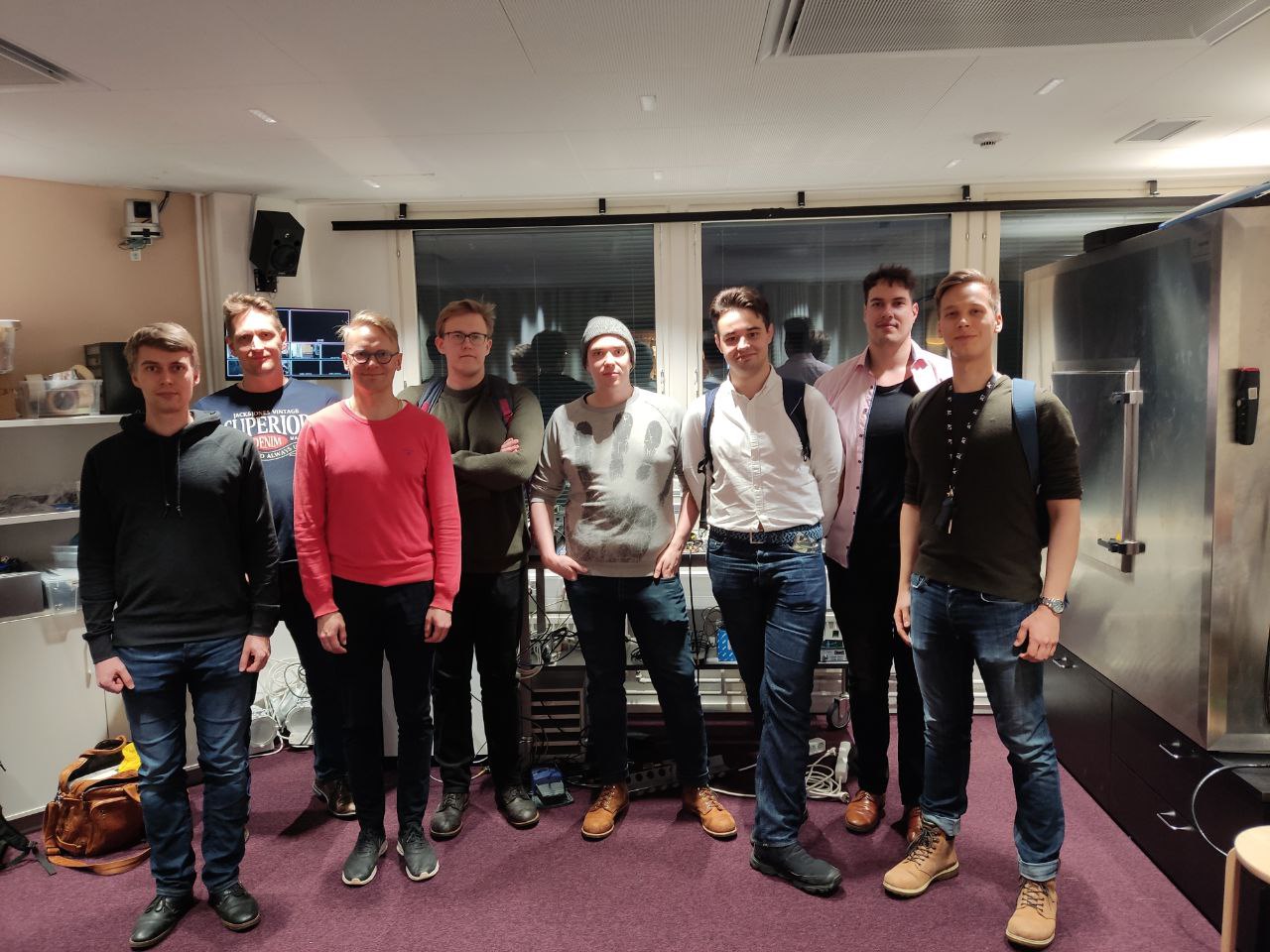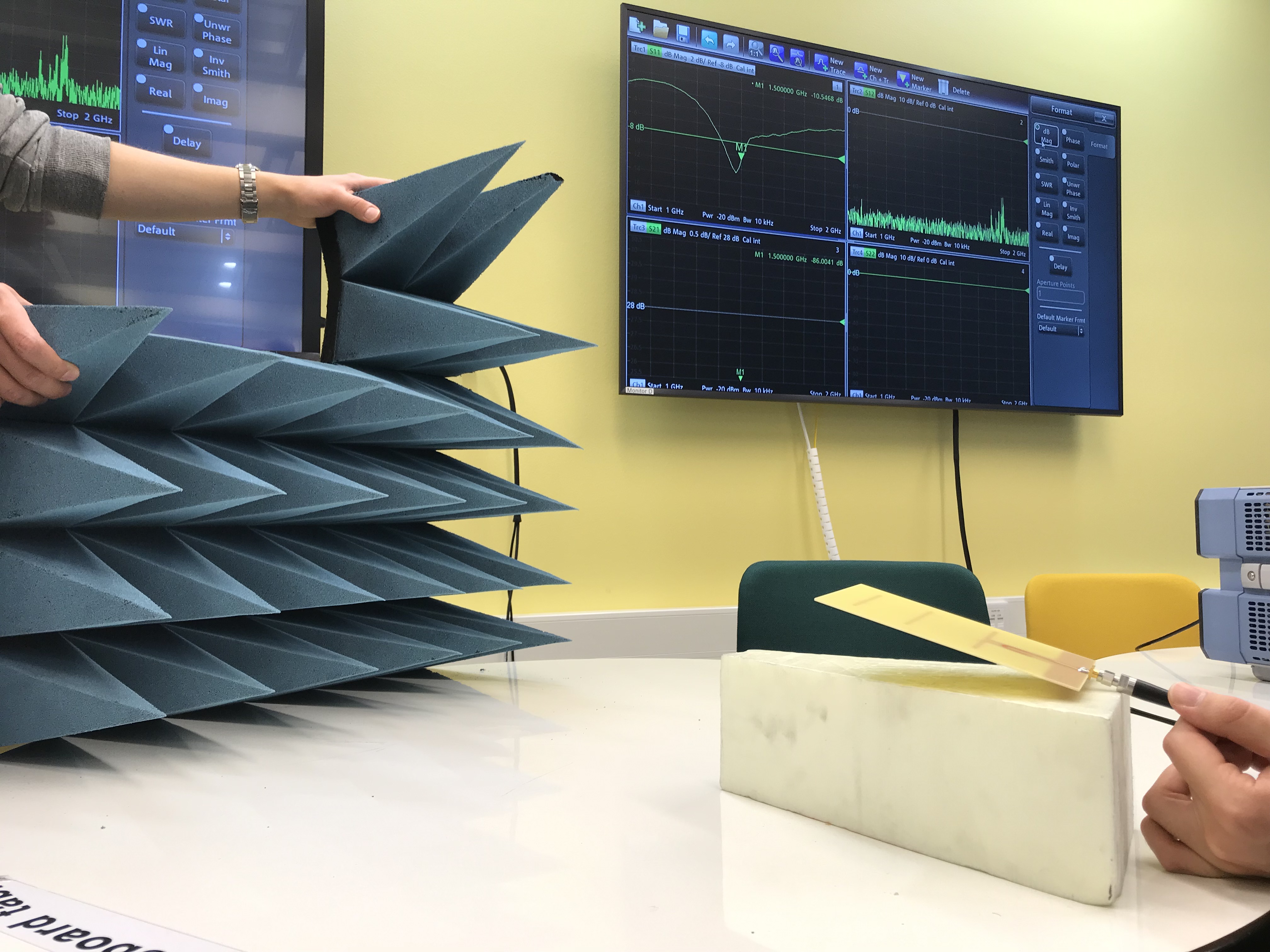ELEC-E4740 - Antennas Workshop D, Lecture, 6.9.2022-9.12.2022
This course space end date is set to 09.12.2022 Search Courses: ELEC-E4740
Topic outline
-
RFID tag measurements were performed in the form of a measurement excursion in Voyantic Ltd in November 2022.

This year's course started at the beginning of September. Unfortunately, it is not possible to join the course anymore. Luckily, the course will be organized again in autumn 2023.
The Antennas workshop is a final-stage course in the microwave engineering major, in which one of the key research areas of the ELE department and ELEC school, antennas, is taught. The teacher team has constantly developed the course in terms of teaching and learning methods as well as the studied topics that are motivated by our antenna research. The course consists of two larger antenna design and research topics that are assumed to enable deeper learning, motivate students, and improve students’ ability to tackle challenging problems. The first studied topic is antenna arrays, which is a vital research area due to their inherent ability for electrical beam-steering, for example, in 5G and 6G communication systems, radars & sensors, and space technology. The second topic, antenna for RFID tags, deals with electrically small antennas, multi-resonant impedance matching and the effect of the nearby objects on the performance of the antenna. This topic is also motivated by the research topics of the ELE and ComNet departments, such as wireless sensors, backscattering communication, mobile terminal antennas, and co-design of antennas and microelectronic circuits. Additionally, both topics are studied in form of a design – manufacture – measurement task.
The pedagogy of the course is based on the constructivist learning theory. It means that knowledge and theory are not only transferred from teachers to students, but new knowledge is “constructed” based on the previous knowledge and experiences of the students. In this course, learning and gaining new insight have more importance than "numerical results". The teachers’ role is to organize the environment and facilitate, not to provide direct solutions. The need for theory is created first in terms of an authentic real-world problem, and necessary theory or other skills are learnt according to the need. For example, the teachers discuss theory in the form of minilectures organized parallel with practical working when they see the need for it, or students ask. The students are also encouraged to test out their ideas, even make mistakes and learn from them. Learning-to-learn skills play a key role in constructivism style teaching because it enables life-wide learning beyond the scope of the course.
In the figure below: VNA measurements in autumn 2022.

In the figure below: VNA measurements in autumn 2021.

